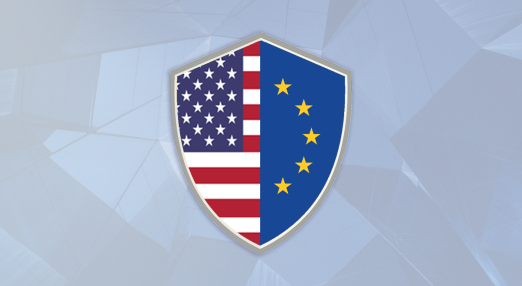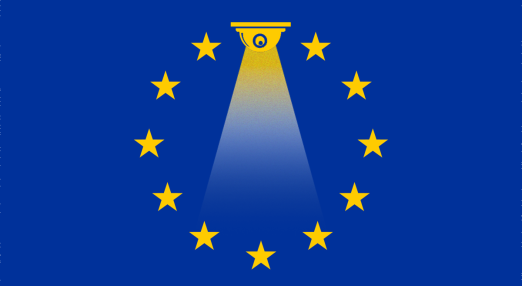“Privacy Shield 2.0”? – First Reaction by Max Schrems
On March 25 Commission President Ursula von der Leyen and President Biden have announced an "agreement in principle" on a new EU-US data sharing system.
Filter resources
-

“Privacy Shield 2.0”? – First Reaction by Max Schrems
On March 25 Commission President Ursula von der Leyen and President Biden have announced an "agreement in principle" on a new EU-US data sharing system.
Read more
-

The European Commission might put a stop to end-to-end encryption
The European Commission is working on a bill that requires platforms to monitor all your chats. This would undermine the essence of end-to-end encryption. What's up with that?
Read more
-

Leaked opinion of the Commission sets off alarm bells for mass surveillance of private communications
A newly-revealed Opinion of a European Commission review board about their own colleagues’ upcoming proposal for a ‘Legislation to effectively tackle child sexual abuse’ shows strong concerns with the legislative proposal. Leaked by French media outlet Contexte yesterday (22 March), and dated 15 February 2022, the Opinion confirms the fears EDRi and 39 other civil society groups recently raised about the proposal which could destroy the integrity of private online communications across the EU, and set a dangerous precedent for the world.
Read more
-

Private communications are a cornerstone of democratic society and must be protected in online CSAM legislation
On 17 March 2022, EDRi and 34 other civil society organisations jointly raised our voices to the European Commission to demand that the forthcoming EU ‘Legislation to effectively tackle child sexual abuse’ complies with EU fundamental rights and freedoms. We are seriously concerned that the draft law does not meet the requirements of proportionality and legitimacy that are rightly required of all EU laws, and would set a dangerous precedent for mass spying on private communications.
Read more
-

Open letter: Protecting digital rights and freedoms in the Legislation to effectively tackle child abuse
EDRi is one of 52 civil society organisations jointly raising our voices to the European Commission to demand that the proposed EU Regulation on child sexual abuse complies with EU fundamental rights and freedoms. You can still add your voice now!
Read more
-

Giropay knows what you bought last summer
A customer contacted noyb after seeing a detailed list of products she had ordered in an online pharmacy and a sex shop listed in her giropay account. Such data is specially protected under the GDPR and may not be processed without consent. noyb filed a complaint against giropay with the Hessian State Commissioner for Data Protection and Freedom of Information.
Read more
-

Cyberattacks on Ukraine’s infrastructure and civil society violate human rights
Alongside Russia’s eight years of armed aggression against Ukraine and its ongoing threats of large-scale invasion, cyberattacks on Ukraine’s critical infrastructure and civilian services are putting people’s human rights at risk. We call on the international community to provide the necessary support to Ukraine and its human rights defenders to ensure people are protected from cyber threats.
Read more
-

Building the biometric state: Police powers and discrimination
This report examines the development and deployment of biometric identification technologies by police and border forces in Europe, and warns that the increasing use of the technology is likely to exacerbate existing problems with racist policing and ethnic profiling.
Read more
-

Guides to collect your data from Apps
EDRi's member Privacy International has devised a series of guides in order to help you collect your data from various platforms such as Uber, Facebook, Telegram and WhatsApp. All of these platforms store a lot of information about you in the cloud, which could become accessible to law enforcement agencies.
Read more
-

ID-Fingerprint obligation to be reviewed by European Court of Justice
The local Administrative Court of Wiesbaden (Hesse, Germany), where EDRi member Digitalcourage started legal action against the obligation for fingerprints in identity (ID) cards, submited the case to the European Court of Justice (ECJ).
Read more
-

Declaration of Digital Principles: Towards a digital pillar of the EU?
On 26 January the European Commission proposed a Declaration on European Digital Rights and Principles. The Declaration will take the form of a joint solemn declaration to be signed by the European Parliament, the Council, and the Commission.
Read more
-

Belgian authority finds IAB Europe’s consent pop-ups incompatible with the GDPR
Following a number of complaints filed in 2018 and 2019, including by EDRi-members Panoptykon and Bits of Freedom, and coordinated by the Irish Council for Civil Liberties, the Belgian Data Protection Authority has found that the consent system developed and managed by the adtech industry body IAB Europe, and used by many websites in the EU, is illegal under the GDPR.
Read more
